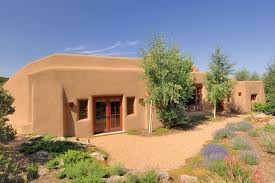In the same way that the 20th Century was defined by advances in technology, it looks as though climate change may be the defining trend in the 21st. Over the past decade the environment has gone from being a secondary concern to being place firmly at the forefront of many people’s minds. Just twenty years ago recycling was seen as a fad among ‘eco-warriors’, whereas now even fast food chains include recycling bins in their restaurants and industrial have waste management policies in place.
Coinciding with this has been the gradual acceptance that climate change will happen within our lifetime; we are already seeing changes in our weather patterns and we have visible evidence that the polar icecaps are melting.
So it is no wonder that eco friendly living is becoming increasingly popular with people. If you are looking to make more environmentally sound choices here are six tips to get you started.
Grow your own
You don’t have to be an organic food enthusiast to buy eco friendly food. Instead there are many ways of ensuring the food you consume is more environmentally friendly, as it is not just the chemicals used to grow food that is harmful but also the fuel used to transport the produce.
If you have a garden, growing your own fruit and veg is not only a great way of eating fresh, chemical-free food, and as it available via your backdoor means that no transportation is needed. Alternatively, buying food from your local farm shop means that the produce has not had to travel far, while also helps to support your local economy.
Going vegetarian, even if it is just one meat-free day a week, also helps towards leading an eco-friendly lifestyle. Large areas of the rainforest are being cut down annually in order for farmers to grow food for animals that we will eat. In addition, raising cattle to be slaughtered for human consumption uses more land and water than growing crops, not to mention the large qualities of methane gas animals produce.
Start cooking
Are you a whizz in the kitchen or do you rely on takeaways and ready meals? Great if you’re the former but if you’re the latter maybe you should think about investing in a cookery book.
Ready meals and takeaways often packaged in a lot of unnecessary packaging – not great for the environment even if you do recycle it, not to mention the fuel used to get the takeaway to your door. While cooking your own meals means that less waste is produced, less fuel is used, less packaging is created, and on top of this, it is better for your health and waistline.
Save electricity
We all know that cutting down on the amount of electricity we use is good for the environment, but what is the best way to do this?
One of the easiest ways to start is by using energy saving light bulbs. While turning off lights, TVs, computers and other electrical appliances are also simple steps towards ensuring your home is more energy efficient.
Many homeowners are starting to add solar panels to make their houses more eco-friendly, while you don’t have to go this far by just increasing the amount of natural light into your home will reduce the electricity you use. Remove net curtains and objects obstructing your windows will mean that you will benefit from natural sunlight and depend less on artificial lights.
Green cleaning
The actual act of cleaning doesn’t impact the environment but the products you use does. Many traditional household cleaning products have chemicals that are toxic to the planet. Instead opt for greener cleaning products that use only natural ingredients, or better still, make your own. Just a quick online search will bring up many natural suggestions for cleaning products that work just as well as chemical laden ones.
Reduce waste
Although recycling is obviously good for the environment, reducing the amount of waste you produce in the first place is even better. Try to use up leftover food when cooking and freeze what you don’t eat. Instead of throwing away plastic water bottles fill them up from the tap (you can always buy water filters if you don’t like tap water). Use old t-shirts as cleaning clothes. Often it only takes a bit of resourcefulness and creativity to think of ways of re-using many of your unwanted goods.
If you have household items such as furniture that you want to get rid of look for freecycling groups in your area, or try selling it at a car boot sale.
Walk and cycle
Walking and cycling are two of the easiest ways of making your lifestyle more eco-friendly. If you are travelling a distance that you cannot walk or cycle using public transport is a great alternative to using a car.
If a car is essential to your lifestyle ensure that it has regular services. Simple things like making sure your tyres are inflated correctly will save the amount of petrol a journey uses, while a well-tuned engine will produce less emissions than one that is badly maintained.




